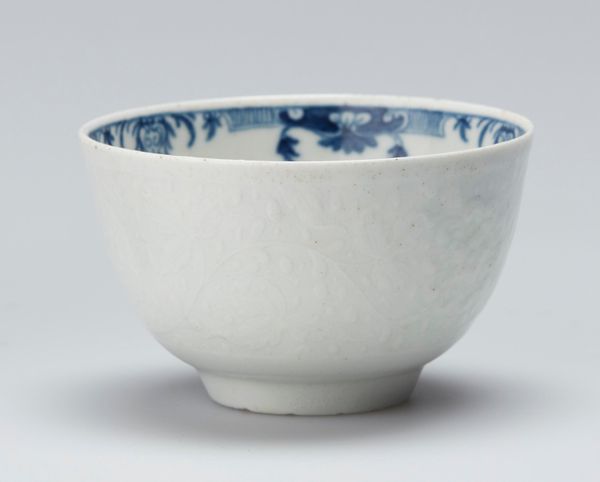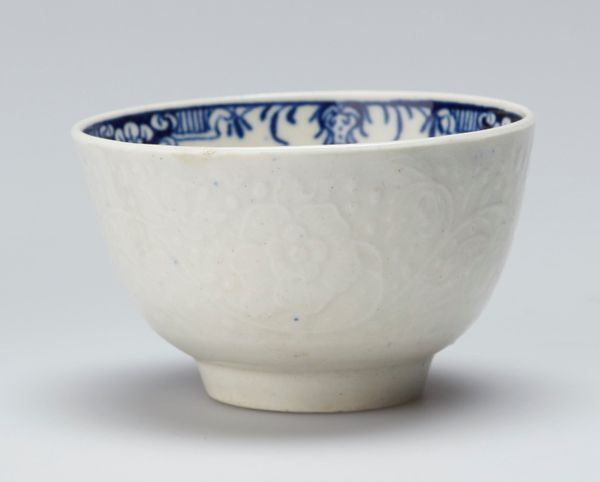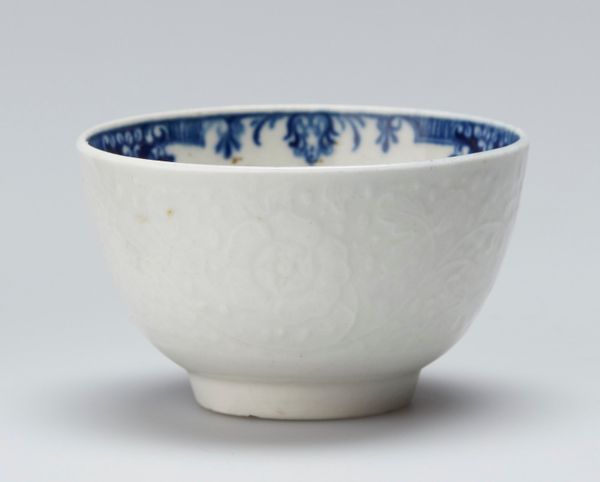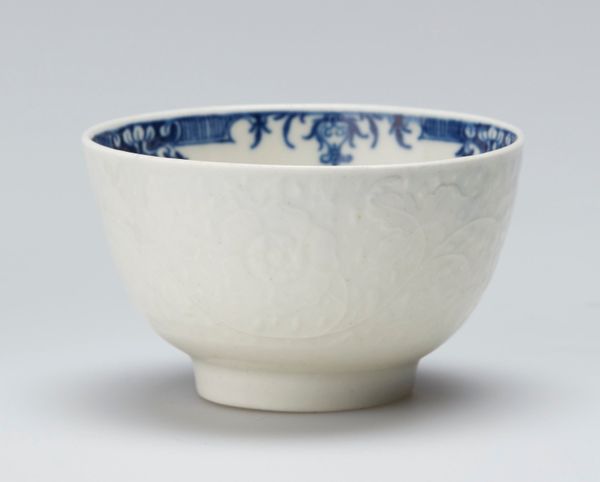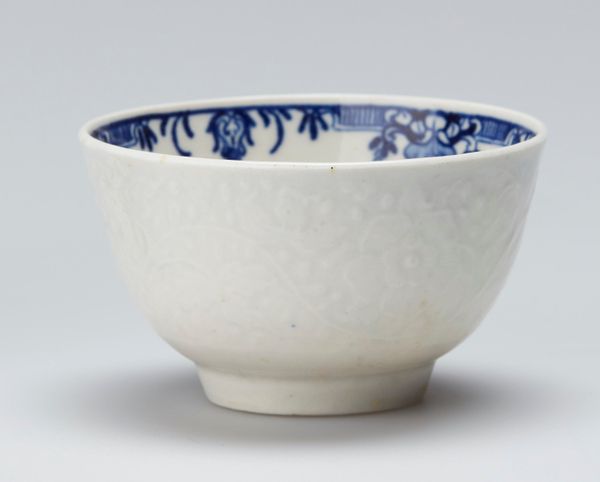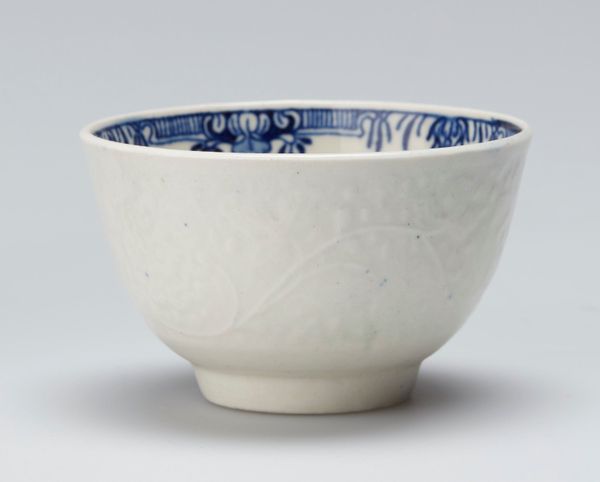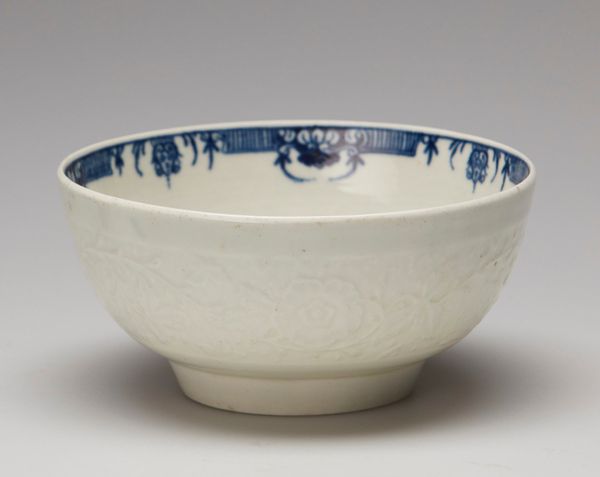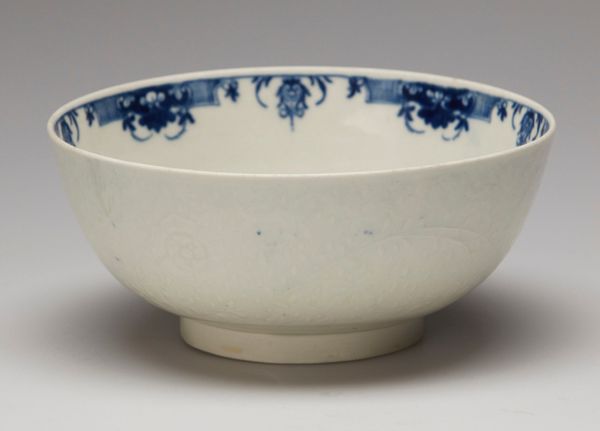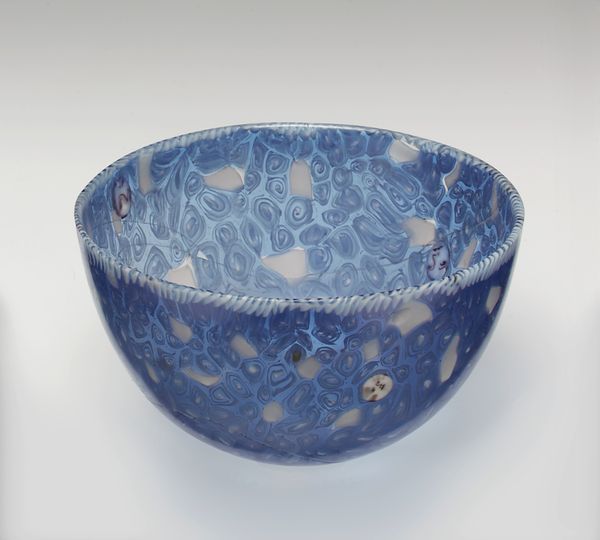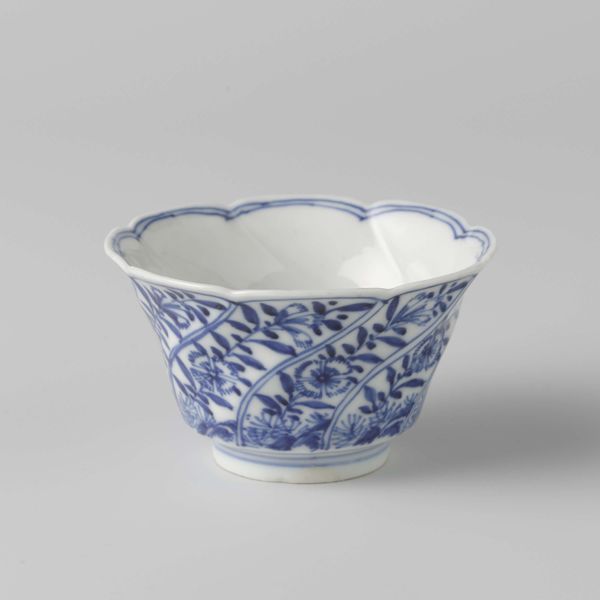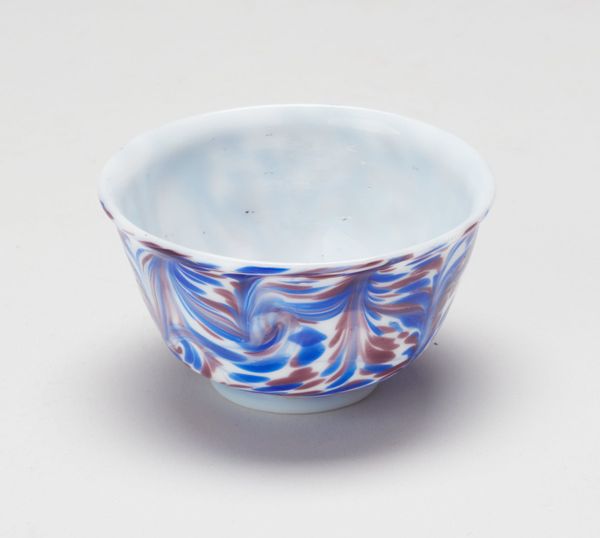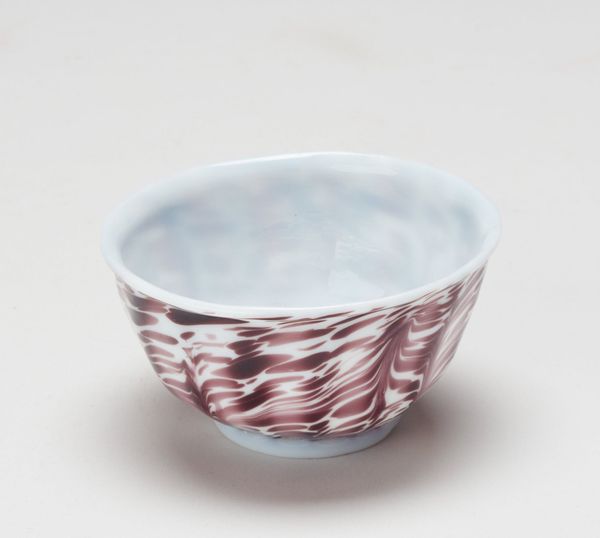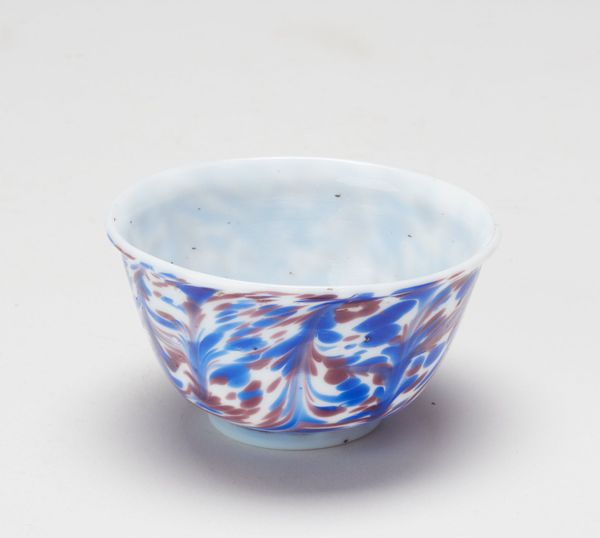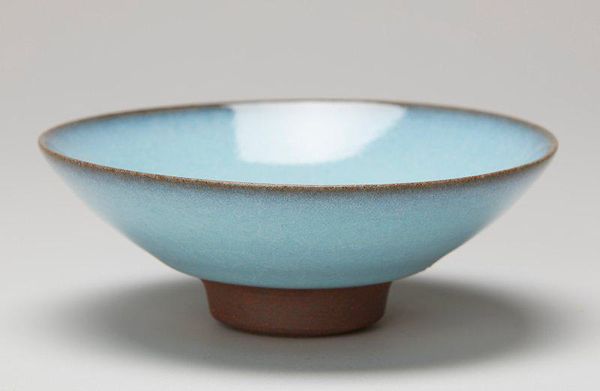
Tea cup c. 18th century
0:00
0:00
ceramic, porcelain
#
ceramic
#
porcelain
#
decorative-art
Copyright: Public Domain
This tea cup was produced by the Worcester Porcelain Works, likely in the late 18th or early 19th century, using a mix of handcraft and factory production. The cup is made of delicate porcelain, a material first perfected in China, and painstakingly reverse-engineered in Europe. Notice the whiteness, thinness, and translucence of the material. These were highly prized qualities. The cup was slip-cast and fired at a high temperature, and then decorated with cobalt oxide, which turns blue when fired. The floral design around the outside was achieved by pressing a mold into the soft clay. While a single individual may not have been credited, its making involved many hands, each contributing to the final product. The story of this teacup reflects the rise of industrial capitalism and global trade, when everyday objects became more affordable and available than ever before. Appreciating the cup means understanding its intricate making process. It invites us to rethink how we assign value and authorship.
Comments
No comments
Be the first to comment and join the conversation on the ultimate creative platform.
